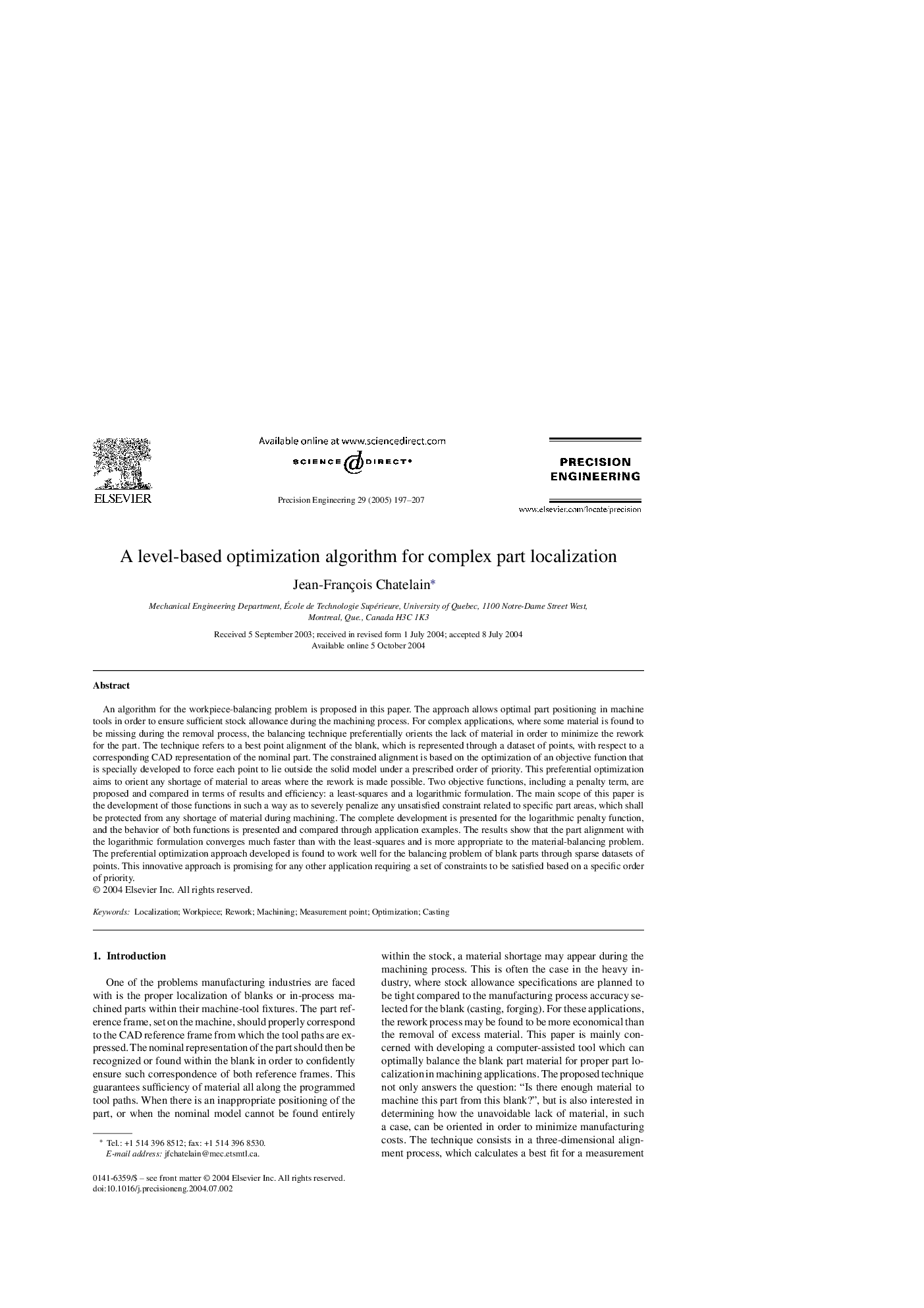| کد مقاله | کد نشریه | سال انتشار | مقاله انگلیسی | نسخه تمام متن |
|---|---|---|---|---|
| 10419555 | 904215 | 2005 | 11 صفحه PDF | دانلود رایگان |
عنوان انگلیسی مقاله ISI
A level-based optimization algorithm for complex part localization
دانلود مقاله + سفارش ترجمه
دانلود مقاله ISI انگلیسی
رایگان برای ایرانیان
کلمات کلیدی
موضوعات مرتبط
مهندسی و علوم پایه
سایر رشته های مهندسی
مهندسی صنعتی و تولید
پیش نمایش صفحه اول مقاله

چکیده انگلیسی
An algorithm for the workpiece-balancing problem is proposed in this paper. The approach allows optimal part positioning in machine tools in order to ensure sufficient stock allowance during the machining process. For complex applications, where some material is found to be missing during the removal process, the balancing technique preferentially orients the lack of material in order to minimize the rework for the part. The technique refers to a best point alignment of the blank, which is represented through a dataset of points, with respect to a corresponding CAD representation of the nominal part. The constrained alignment is based on the optimization of an objective function that is specially developed to force each point to lie outside the solid model under a prescribed order of priority. This preferential optimization aims to orient any shortage of material to areas where the rework is made possible. Two objective functions, including a penalty term, are proposed and compared in terms of results and efficiency: a least-squares and a logarithmic formulation. The main scope of this paper is the development of those functions in such a way as to severely penalize any unsatisfied constraint related to specific part areas, which shall be protected from any shortage of material during machining. The complete development is presented for the logarithmic penalty function, and the behavior of both functions is presented and compared through application examples. The results show that the part alignment with the logarithmic formulation converges much faster than with the least-squares and is more appropriate to the material-balancing problem. The preferential optimization approach developed is found to work well for the balancing problem of blank parts through sparse datasets of points. This innovative approach is promising for any other application requiring a set of constraints to be satisfied based on a specific order of priority.
ناشر
Database: Elsevier - ScienceDirect (ساینس دایرکت)
Journal: Precision Engineering - Volume 29, Issue 2, April 2005, Pages 197-207
Journal: Precision Engineering - Volume 29, Issue 2, April 2005, Pages 197-207
نویسندگان
Jean-François Chatelain,